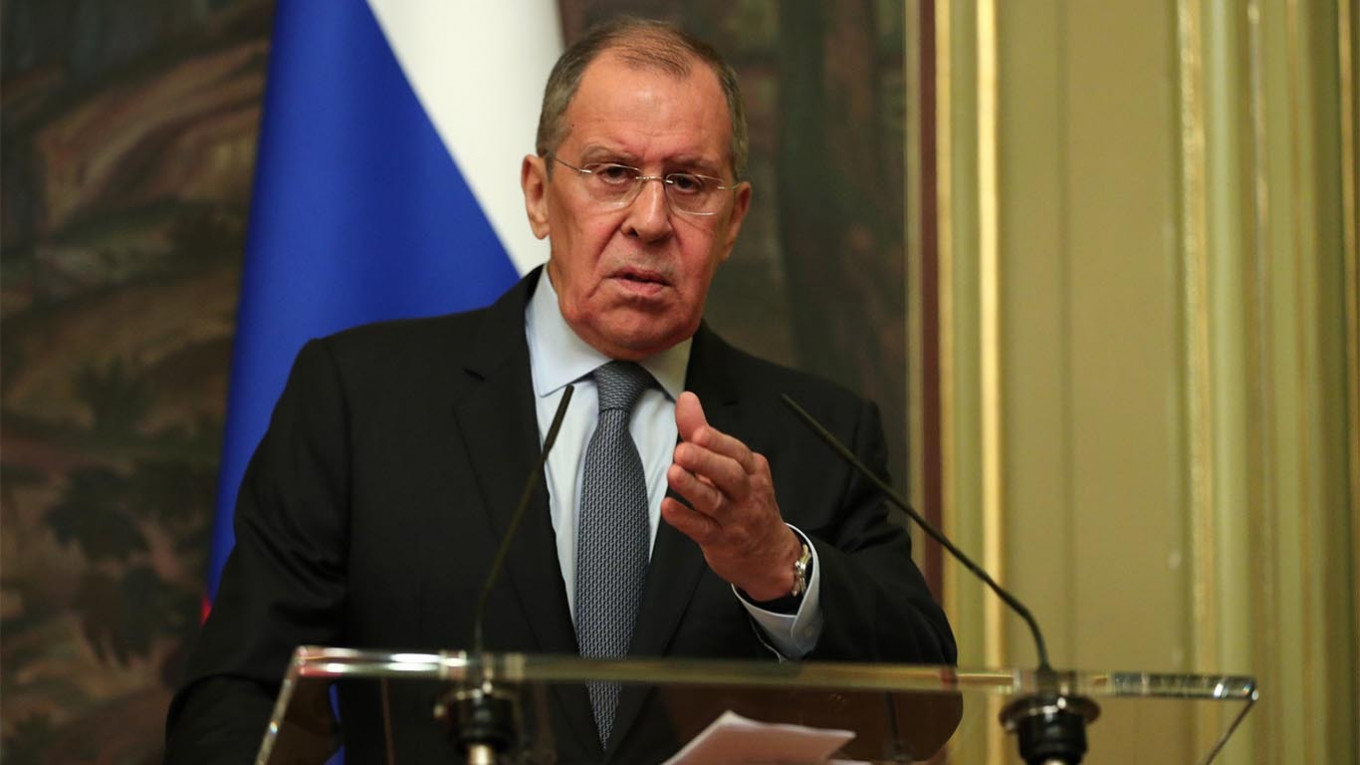
Syria’s President Bashar al-Assad discussed economic cooperation Monday with Russia’s Foreign Minister Sergei Lavrov, as Moscow’s envoy made his first visit to war-torn Syria since 2012, the presidency said.
Assad said “the Syrian government was determined to continue working with Russian partners” to implement signed agreements, and encourage the “success of Russian investments in Syria,” a statement from the presidency read.
They discussed possible new agreements “in the interest of both countries and to alleviate the impact of a policy of sanctions” by Western countries against government-held areas of Syria, the statement added.
Lavrov joined a Russian delegation led by Deputy Prime Minister Yury Borisov, arriving in the Syrian capital on Sunday night, state news agency SANA said.
Both countries have signed several deals in recent years in energy, construction and agriculture.
They include one for Russian firm Stroytransgaz to take over Syria’s largest port of Tartous for 49 years.
In 2018, Syria awarded the same company a 50-year concession to extract phosphate in the central region of Palmyra.
The Russian foreign minister later attended a news conference with his Syrian counterpart Walid Muallem, after which he was due to head to nearby Cyprus.
President Vladimir Putin made his first trip to Damascus in Syria’s nine-year-old war in January this year.
The Russian leader also visited Syria in December 2017, but did not go to the capital, only stopping at the Russian base of Hmeimim on the Mediterranean coast.
Russia has been a key ally of the Damascus regime throughout the Syrian conflict that erupted in 2011 with the repression of anti-government protests.
Moscow’s military intervention in 2015 helped turn the tide of the war, with Russian air power allowing Syrian government forces to win back large parts of the country from rebels and jihadists.
Russia already has a naval base in Tartous.
With UN-led peace talks floundering in recent years, Moscow and rebel backer Turkey have emerged as the main powerbrokers in alternative negotiations.
The conflict has ravaged the Syrian economy, killed more than 380,000 people and pushed millions to flee their homes.
